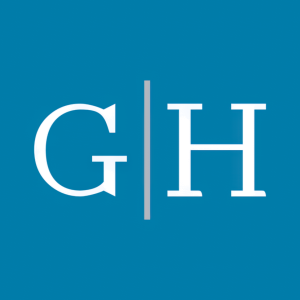Kaplan Survey: Law Schools Lag on Official Policies on How Applicants Can Use AI in Admissions Essays, Potentially Leaving Them in Limbo
- Writing: Of the admissions officers surveyed, only 1 percent say their law school has an official policy allowing applicants to use Generative AI programs such as ChatGPT to write their essay; 45 percent have an official policy prohibiting it; and 54 percent have no official policy at all.
- Brainstorming: 16 percent of admissions officers say their law school has an official policy allowing applicants to use GenAI programs to brainstorm essay ideas; an identical 16 percent have an official policy banning it, while the remaining 68 percent have no official policy in place.
- Feedback: 15 percent of admissions officers say their law school has an official policy allowing GenAI programs to provide feedback for essays that applicants independently draft; an identical 15 percent have an official policy against its use, while the remaining 70 percent have no existing official policy.
Admissions officers shared the following opinions about the best practices of GenAI:
- “I don't believe there are effective ways to use Generative AI in the admissions process as I believe any use of it diminishes the applicant’s own voice. It also harms writing skills, which have already declined in recent years.”
- “The point of the personal statement, for us, is to learn more about the applicant and evaluate their writing abilities. Applicants should be encouraged to submit something authentic in their application, in their own voice. I don't believe using AI even for brainstorming encourages authenticity.”
- “Applicants should disclose the use of Generative AI, then describe how they used it to complete their applications. Applicants should avoid using it to do the work of the application—instead, they should use it for grammar and revision purposes.”
Amit Schlesinger, executive director of legal and government programs, Kaplan, says:
“We’re somewhat surprised that more law schools don’t have official policies to provide pathways and guardrails on how applicants can use GenAI, given its rapidly growing adoption, but we don’t believe that’s a tenable position. As we see it, in a way, no policy at all may be understood by applicants as a de facto policy of allowing it, which only muddies the waters. Applicants may view official policies on the use of GenAI as crucial because they provide clear guidance and ethical boundaries, ensuring a level playing field. Transparent rules help applicants understand how they can responsibly leverage GenAI, while preserving the integrity of the admissions process and allowing them to showcase their genuine capabilities.”
Contact russell.schaffer@kaplan.com for more information.
*Admissions officers from 97 of the nation’s 197 American Bar Association-accredited law schools were polled by email between July and September 2024. Among the 97 law schools that participated are 34 of the top 50, as ranked by
About Kaplan
Kaplan, Inc. is a global educational services company that helps individuals and institutions advance their goals in an ever-changing world. Our broad portfolio of solutions help students and professionals further their education and careers, universities and educational institutions attract and support students, and businesses maximize employee recruitment, retainment, and development. Stanley Kaplan founded our company in 1938 with a mission to expand educational opportunities for students of all backgrounds. Today, our thousands of employees working in 27 countries/regions continue Stanley’s mission as they serve about 1.2 million students and professionals, 15,000 corporate clients, and 3,300 schools, school districts, colleges, and universities worldwide. Kaplan is a subsidiary of the Graham Holdings Company (NYSE: GHC). Learn more at kaplan.com.
Note to editors: Kaplan is a subsidiary of the Graham Holdings Company (NYSE: GHC)
View source version on businesswire.com: https://www.businesswire.com/news/home/20241008571622/en/
Press: Russell Schaffer, russell.schaffer@kaplan.com
Source: Kaplan, Inc.







